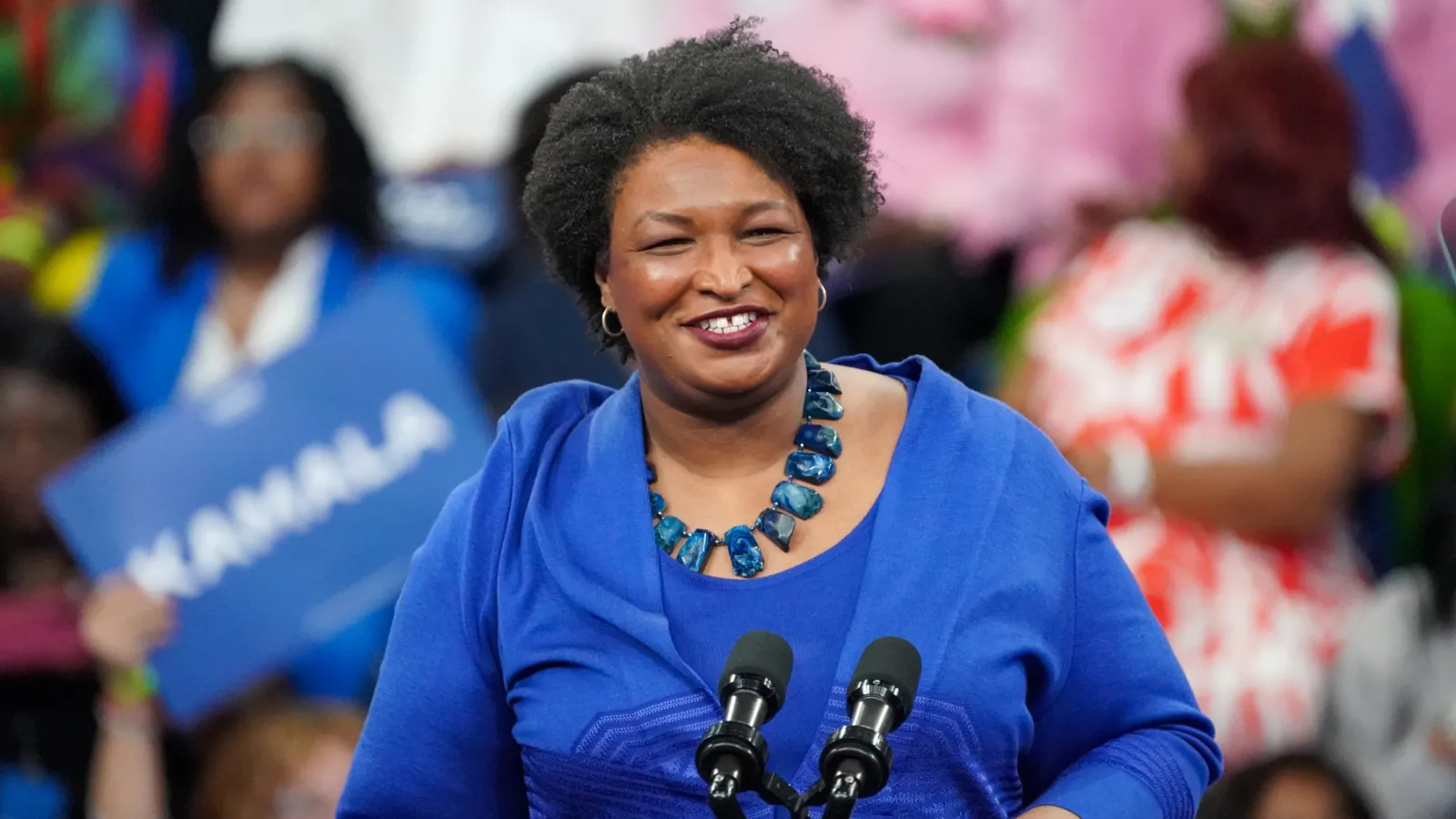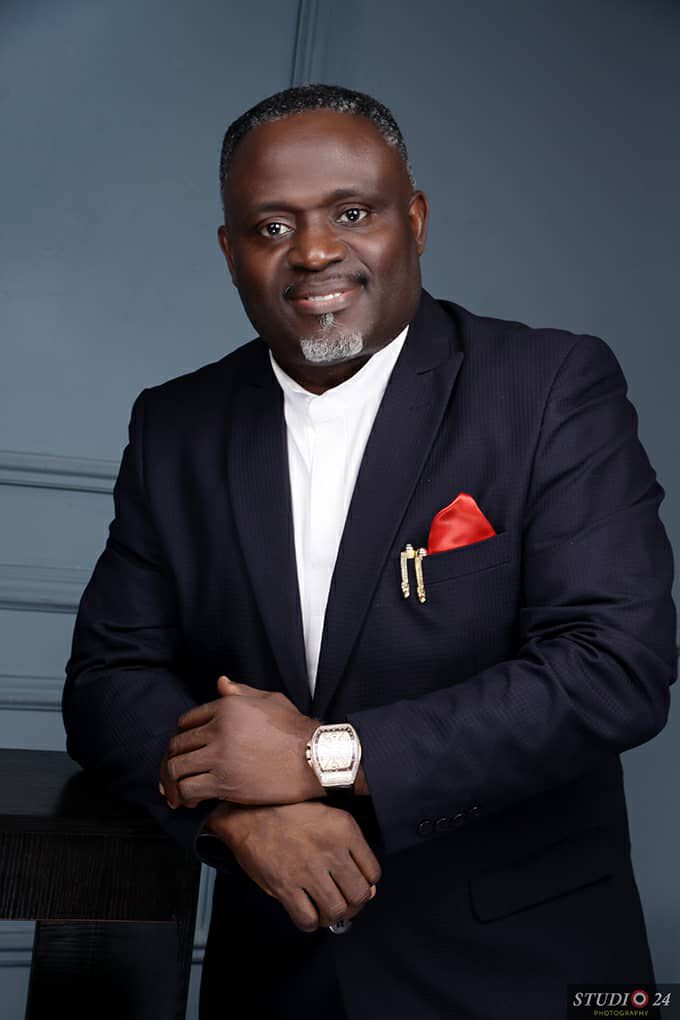Copyright Rolling Stone

Stacey Abrams — the two time Democratic gubernatorial candidate in Georgia — has a new mission: defending democracy and diversity, equity, and inclusion in equal measure. At a moment when Donald Trump’s administration has made a crusade out of stamping out DEI initiatives in government — even going so far as to repeal a Civil Rights-era order banning segregation by federal contractors — Abrams continues to make the case that diversity is our strength. America works best, in her view, when folks without structural advantages are welcomed to the table and given a fair shot to contribute. To pursue this work, Abrams founded a nonprofit called American Pride Rises, with the tagline: “We fight for opportunity for all, no exceptions.” Just going off headlines and news of corporate and collegiate capitulation to Trump’s anti-DEI agenda, you might think that Abrams is rowing against the tides. But DEI remains stubbornly popular among Americans not in the MAGA camp. And Abrams is determined to see the political pendulum swing back into line with popular opinion. Success will hinge on victories at the ballot box — which are threatened by Trump’s increasingly authoritarian mode of governance, and his marching orders for state legislatures to redraw congressional districts to his partisan benefit. Seeking to champion America as a pluralistic democracy, Abrams has also launched a new “10 Steps” campaign. The initiative sounds the alarm about 10 signs of “autocracy” in America. But it also offers everyday people 10 constructive steps for fighting back. Rolling Stone spoke with Abrams by phone earlier this month, shortly after Trump summoned America’s diverse military brass to Quantico to call for confronting what the president calls the “enemy within.” The transcript that follows has been edited for length and clarity. I’m looking through your 10 signs of autocracy, and It’s pretty harrowing. We’ve already witnessed expanded executive power; attacks on the media; captured branches of government. It seems like we’re up to step eight or nine out of 10 here. Clearly you see this as a dangerous moment. We’ve actually had all 10 steps. Look at step 10 — which is ending democracy — making certain we don’t have free and fair elections. The way that manifests in autocracies is not that they don’t hold elections. Venezuela has elections. It’s that the elections don’t mean anything, because they manufacture the outcome. Editor’s picks That’s what watched happen when the president and the Republicans explicitly went to Texas to rig the system, to game the number of [congressional] seats they could win. They did the same thing in Missouri. They’re planning to do it in other states. We saw Georgia purging 400,000-plus voters [from the rolls] after a 115,000 vote margin in 2024. It’s very important that we understand we have hit all 10 steps. But when you recognize it — that’s when the ability to resist and to thwart authoritarianism is made real. And that’s the point behind the campaign. I think for many Americans this present moment feels awkward, or it feels bad, but it doesn’t feel like authoritarianism — because that’s not what we’ve been trained to look for. It’s critical that we understand that we are in it. This is not something that’s coming. This is not if we do 10 more things, it happens. No, it is here. But we also know the playbook for resistance. And the 10 Steps for Freedom and Power are there to remind us that we know how to stop this from taking permanent hold. We all have to do something. A critical mass of people has to believe that they are part of thwarting this authoritarian takeover. Because when you have that critical mass, it works. Related Content The campaign is designed to say we don’t need a single person or a single approach to win. What we need is the volume of action, the consistency of action and the engagement of every person willing to act. But we’ve got to meet people where they are. What are a couple examples that would be accessible to folks who are alarmed but are unsure of how they can help? One of the 10 steps is “sharing,” which may sound very small-ball. But the reason they tried to get rid of Jimmy Kimmel, the reason they defunded PBS and NPR, the reason they wanted Karen Attiah and Matthew Dowd fired, is because they don’t want us to have good information. In nations where silence is the currency of the government, civil resistance relies on the ability and willingness to share effective information. There are 330 million of us, so sharing information changes things. When people actually see what the effects [of authoritarianism] are, they’re willing to take action on a larger scale. So if you’re in Portland, when the National Guard is deployed, you should be filming everything they do, and you should be sharing that information — because they don’t want us to know what’s happening. Another step is “mobilize.” We tend to think we have to go to a massive march. But maybe you live in a community where there are just 500 people and only 40 of them agree with you. A march may not be the thing. But you can host a conversation. You can all talk about, for example, the national park in your rural community where everyone’s been laid off because of the shutdown. These families aren’t eating right now because nobody there has a job. So you organize a Friday potluck where you are feeding them. That mobilization might feel small, but one of the ways you defend democracy is by showing people that we’re in it together. What other steps would you highlight? My two favorites are “disruption” and “denial.” Authoritarian systems require obedience. Disruption means you refuse to comply, you protest. It’s also handing out “Know Your Rights” cards if you live in a community where you now have the armed military [forces]. They are not the police and they don’t have the authority of police. Let’s make sure people know what their rights are. Then, step seven, “denial.” This is using language they’re not going to like. For example: continuing to call it the Gulf of Mexico. Denial is a bridge to the conversation about diversity, equity, and inclusion. How so? Authoritarians strip you of your language. They try to convince you that what you know is not true and that what you say is not valid. We have to deny authoritarians their ability to demonize our language. DEI is the currency of America. Diversity, equity and inclusion are three foundational values that let us survive and thrive, despite the perfidy that we’ve seen in this country. If you look at the original list of executive orders that came out in the first 48 hours [of Trump’s second term], DEI was the most prominent attack. Because they don’t like pluralism. They don’t like diversity. They are afraid of equity. They are terrified that inclusion has actually made us stronger. So we have to not only use the language, but we have to understand that DEI is the core of how we’ve made this democratic republic function, and we should be fighting for it. Our military is America’s prime marker of inclusion being our strength. But watching Trump address the generals at Quantico was jarring. The president is up there making weird references to the n-word, and talking about how the Congolese have emptied their prisons into America. The racial coding is not difficult to understand. It’s alarming how much of this authoritarian project appears to be twinned with reasserting white dominance. Their anger is grounded in our success. They’re mad at DEI because it worked. Pete Hegseth has railed against the success of the world’s mightiest military actually achieving the intentions of a pluralistic democracy: The people fighting for America look like America. That’s what he was angry about. That’s what the president has reviled. We have to recognize that, while they are starting with DEI, they’re coming for everyone. The president of the United States is very clear in using language that not only has a white supremacist positioning, but it also speaks to restoration of the notion that women should not have positions of power. They start with race, because race is the original sin of this nation. But race is not the only predicate for discrimination. It is also gender. It is sexual orientation. It is the reason the secretary of defense made a disparaging comment about our transgender troops. It is the reason that they are eviscerating access to the Americans with Disabilities Act. When they slashed in half the Department of Education, what they’re denying are IEPs, individual education plans for disabled children and children with learning disabilities. They are attacking anything they do not believe speaks to this perfected, very pale, version of what they think America is. We cannot allow that to go unchecked. Unfortunately, for them, in this country, we’ve had 250 years of practice mounting strong resistance. We just have to be reminded of our muscle memory. That’s the intention of the 10 Steps program. The central pillar for me is DEI because there is nothing more terrifying to the fascism and authoritarianism than diversity, equity, and inclusion, because, by its very nature, it defies what they are attempting to create. I do worry that there’s a sense of doomerism around American elections right now, that people may believe the fix is in and not show up at the ballot box. What’s your view on the importance of continuing to engage in the political process, despite the setbacks that may make elections less fair? My father was arrested when he was 14 for registering black people to vote in Mississippi. He believed as a teenager that this right was so fundamental that he was willing to sacrifice his freedom for something his father was sent to fight for — but denied when he came home. Exempting ourselves from the hard work of fighting for democracy is a luxury we can’t afford. We may not guarantee the outcome. We can guarantee the fight. My broader mission is for us to remember we are not defeated, and, in fact, that we are winning. Because if they’ve already won, they would not be doing what they’re doing. They would not be holding, you know, faux Patton-like spectacles, summoning the generals to pretend power. Trending Stories They wouldn’t be issuing executive orders that are more fiction than the novels that I write. They also wouldn’t be deploying the military to harass citizens. They wouldn’t be standing up masked secret police. If they were already successful, they would be enjoying the fruits of their labor. Instead, they are laboring to convince us that we’ve already lost. We don’t have to agree on everything, but we have to be aligned that democracy is worth fighting for — and that we can win.



